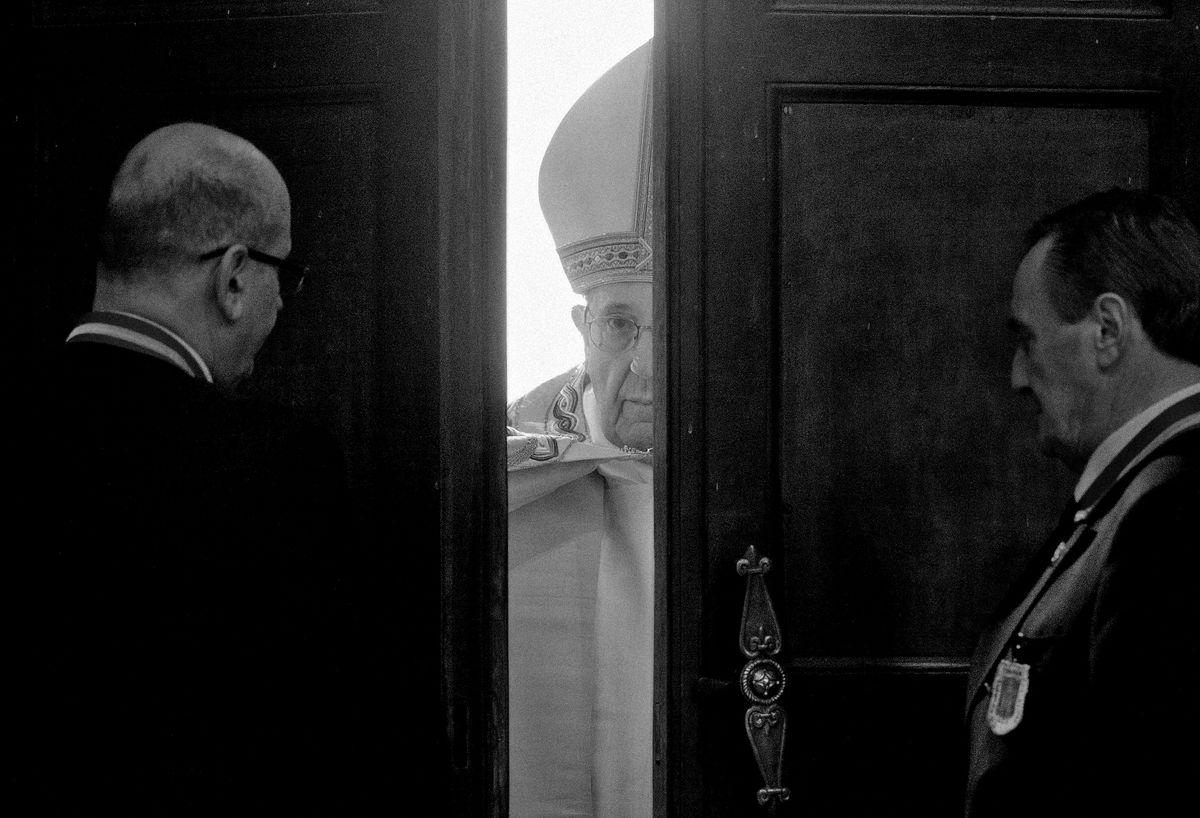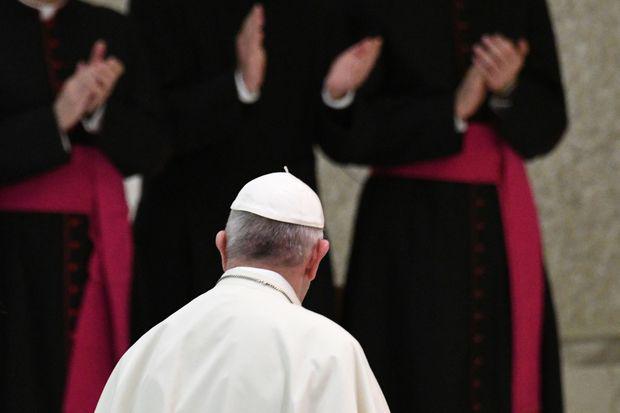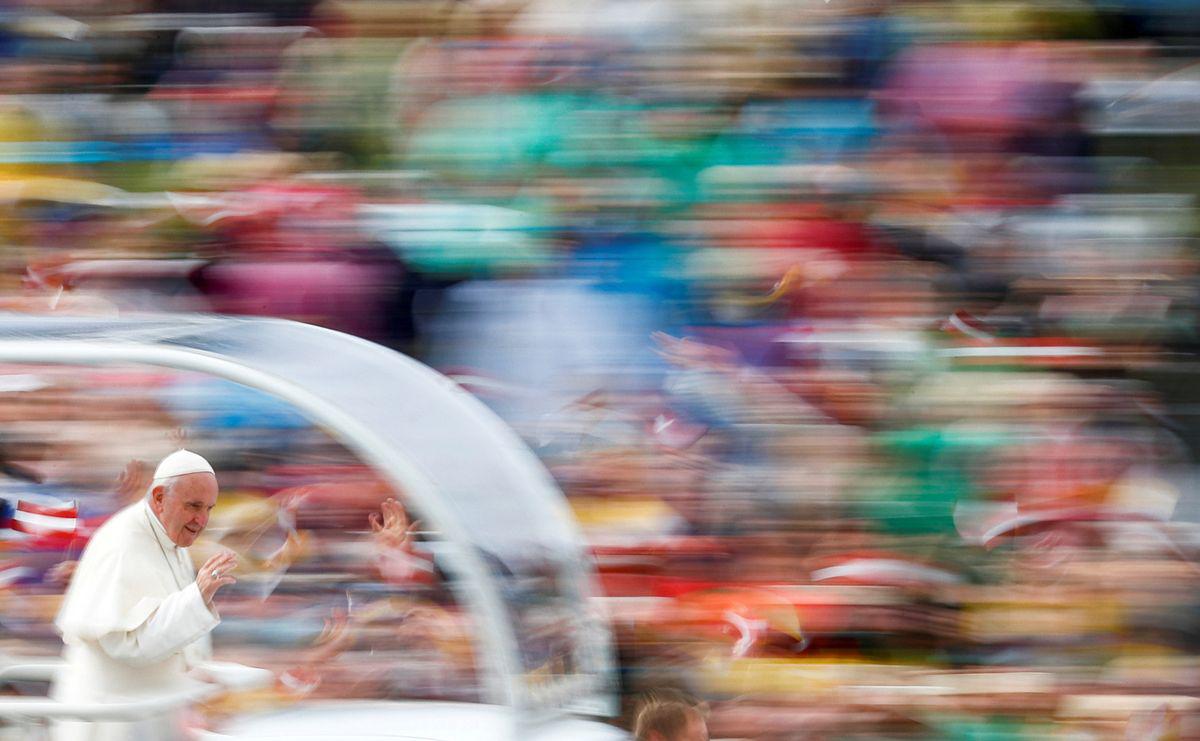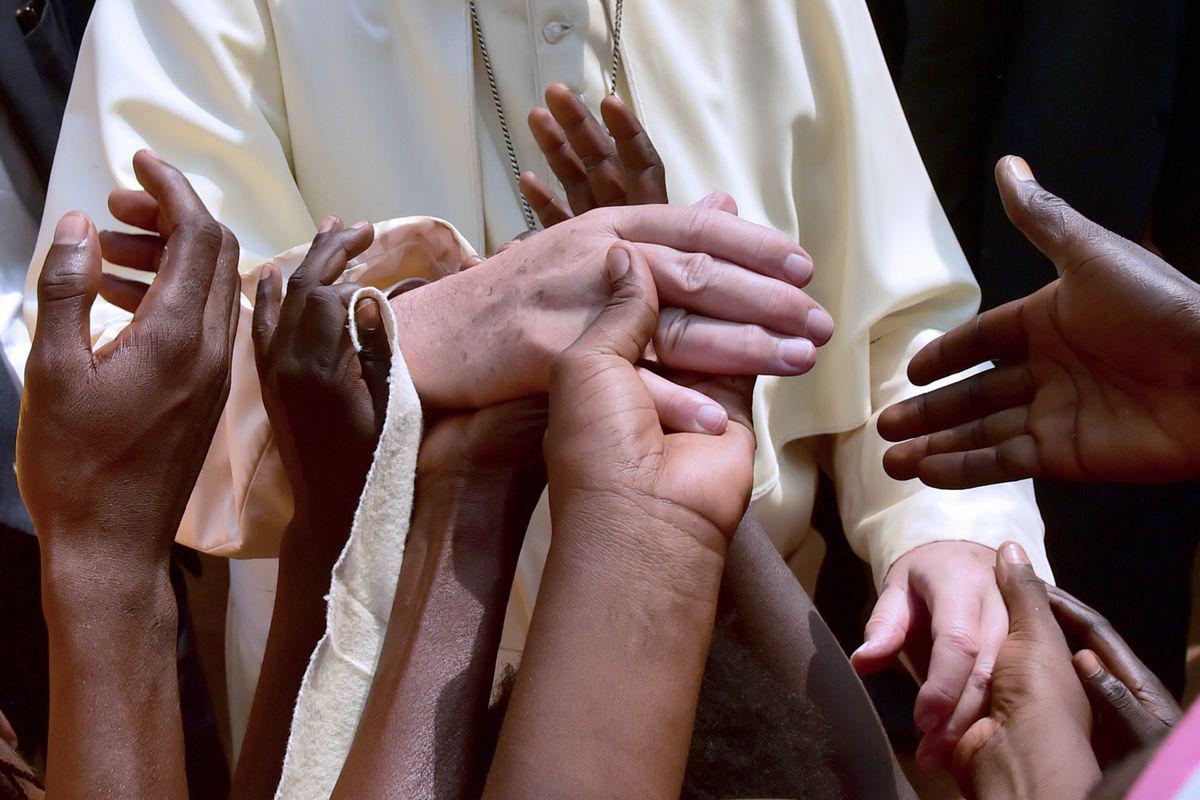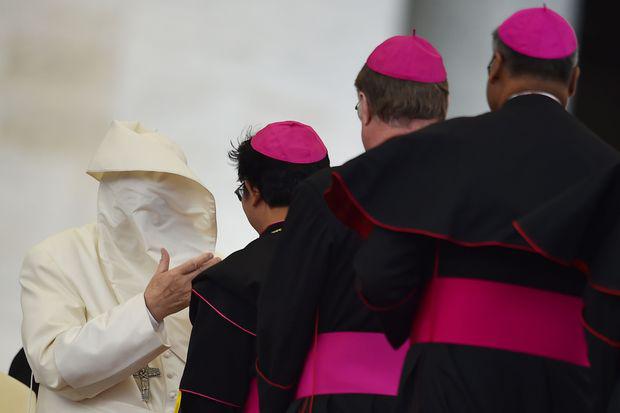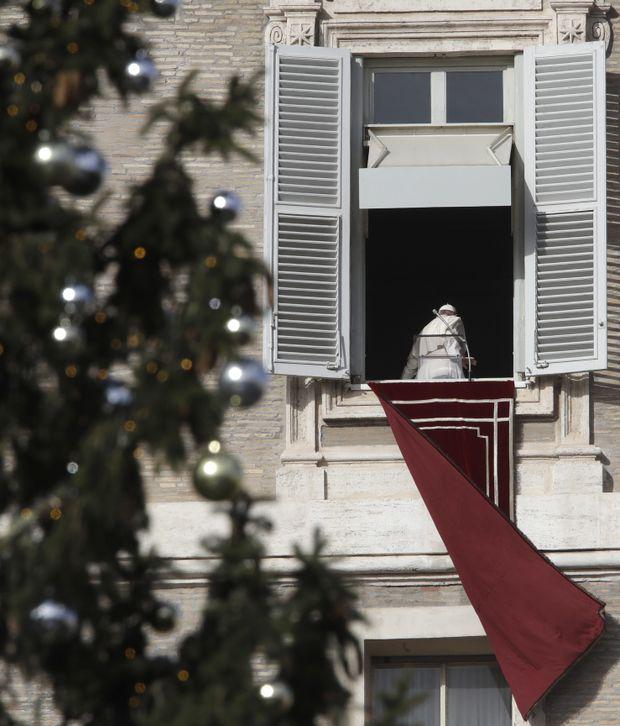|
After more than a bad year, will Pope Francis right the ship?
By Michael W. Higgins
The unhealthy pontificate state of affairs – clerical rebellion, sex-abuse scandals, cover-ups – is not the exception. It’s the rule. Drastic, deep change is needed. Michael W. Higgins is the distinguished professor of Catholic thought at Sacred Heart University in Fairfield, Conn., author of Jean Vanier: Logician of the Heart and co-author of the forthcoming Impressively Free: Henri Nouwen as a Model for the Reformed Priesthood. Every modern pope appears to have had an annus horribilis at some point in his pontificate. For Pope Francis, such times of tumult and catastrophe are not bound to a 12-month cycle with a longed-for terminus: They are the norm, not the exception. For the current Pope, internal chaos, open rebellion by dissident clerics, dubious professions of loyalty by high-ranking prelates and a cascade of sex-abuse scandals and episcopal cover-ups all make for an unhealthy state of affairs. It is irregular to have a former papal ambassador, Carlo Maria Viganò, complain publicly about his boss (they do so robustly, but in private), flinging allegations of misconduct against the Pope himself in the public arena and calling for his resignation because he, and his like-minded corruptors, promoted the now disgraced former cardinal of Washington, Theodore McCarrick, with the full knowledge that his behaviour fell well below accepted standards. Indeed, Viganò argues the Pope was remiss in not enforcing sanctions against the errant cleric – sanctions initially applied by Benedict XVI. All of these charges are in fact insubstantial, flimsy, designed to weaken the papacy, the pathetic rant of a disappointed careerist wrapped in the rhetoric of moral outrage. Who buys it? Not Francis. But his critics consume it like nectar. How did we get to such a deterioration of Catholic institutional integrity, to such a radical undermining of the authority of the papacy? Why is Francis at the centre of an upheaval with no contemporary parallel? In small part, he has brought it on himself. Like the President of the United States, he is not shy in scolding his subordinates in public, berating them for failing to do their duty. He has mercilessly reprimanded his own cabinet or curia for their haughtiness, their failure to have about them the “smell of the sheep,” their ingrained sense of entitlement. Unlike Donald Trump, however, Francis does not attach a high premium to personal loyalty in those around him, does not command unswerving obedience to his every whim, recognizes that he, too – very especially he, too – is subject to the very charges he wields against his brother clerics. When asked how he would define himself, he does not invoke his exalted position of leadership, his priestly pedigree, his unique station; he simply says he is a sinner. I’m not sure that is part of Mr. Trump’s vocabulary of self-awareness. But if Francis has miscalculated in his management style, opting for the rebuke over the strategically more productive affirmation his co-workers would warmly welcome, it is not because he is cold-hearted or indifferent to the feelings of his fellow priests, but because he burns with the zeal of one possessed by a vision of the Gospel that has no time for empty pleasantries, mild exhortations and pious puffery. Francis is on a mission, a mission that is not about correcting institutional failures, rallying the troops to order, scouring the temple of hypocrites or calling to account venal shepherds, although all these are results of his mission. His mission is not about renewal, a partial cleansing, a mere tinkering with the status quo. No, his mission is about reform. And his critics get that; they know what Francis is doing – and it terrifies them. Francis wants a church of the poor, not a church for the poor. He wants a church of mercy that prioritizes human dignity above the canonical rules. He wants a religious leadership that is grounded in humility and grit, not clothed in ermine and jewels. He wants black Oxfords over red Prada footwear, genuine human commerce over Renaissance etiquette, simple living over lavish accommodation. In short, he wants the radical simplicity of il poverello di Assisi, his namesake, not the triumphalist manner of a spiritual leadership unmoored from the Gospel. It is not difficult to see why he unsettles so many. Renewing the structures of the church has been going on since the end of the Second Vatican Council in 1965, and although many tensions and countervailing forces were unleashed in the ensuing years, the pace of change has been that of a tortoise. Francis is the roadrunner. The Pope sees what others do not – or choose not to see: The biggest obstacle to the spiritual revivification of the Catholic Church is its clergy. The seemingly endless spate of clerical sex-abuse allegations is but one, if not the major, indicator of clerical dysfunction, and the clergy – from the lowest ranks to the highest – are in desperate need of a theological recalibration, because the system isn’t working effectively. The priesthood is held captive to clericalism, bishops function in a politically feudal manner, the disconnection between the laity and the clergy widens daily, the role of women in ministry gathers dust on Vatican shelves while scores of the faithful disengage from active religious practice, and the wider credibility of an institution of eminent vintage suffers blow after blow. Although Francis is not sparing in his criticism of leaders and trends outside the immediate Catholic orbit – the continuing immigration and refugee crisis, human trafficking, economic inequity, the curse of racism, the rise of populism and nativism and the political failure to address the environmental disaster that ravages our common home, as he calls it – his public profile as the international voice on these moral concerns has been seriously compromised by the internal issues hobbling the church. He has no choice but to clear out the sludge. And so, again and again, he berates those bishops who do not act as bishops but as overlords, princelings of a different era, and he calls his working priests to a higher order of service, reminding them that they are not judges but listeners, fellow sinners accompanying their flock. The image that best captures his sense of what priestly ministry must mean if it is to be authentic is the church as a field hospital: “I see clearly that the thing the church needs most today is the ability to heal wounds and to warm the hearts of the faithful; it needs nearness, proximity. I see the church as a field hospital after battle. It is useless to ask a seriously injured person if he has high cholesterol and about the levels of his blood sugars. You have to heal his wounds. And you have to start from the ground up. This is the mission of the church; the church heals, it cures … [it] is to heal wounds of the heart, to open doors, to free people.” It is not for nothing that Jean Vanier calls this pontificate a “revolution of tenderness.” But all revolutions exact a heavy cost, and popes – this one in particular – understand that if the church is to be radically faithful to its founder, such radicality will entail much stripping of privilege, power and prestige. Beginning at home. This is why this Argentine – no natural denizen of the Eternal City, for he never studied in Rome, served in its governance apparatus or cultivated Roman allies – feels free to decline the perks of office: He lives simply, dines simply and drives simply. It is his model of leadership. Getting others to do likewise is a massive undertaking. He has instructed his nuncios to bring him bishop candidates who share his vision of a simple church shorn of the raiments of authority. He has remonstrated with those clergy who use spiritual fatherhood to manipulate others. And he encourages the dramatic freedom that comes from a transparency born of honest speaking. He has won many over. And many see him as the Antichrist, undoing the work of his immediate predecessors, John Paul II and Benedict XVI, sundering the truths of the Holy Catholic Church. And many of these detractors are clergy. This is where the battle is joined. And Francis knows it. That is why the reform of the clergy is the primary plank of his papal agenda. If you believe that shepherds must lead by example, that priests are called to be agents of mercy and not arbiters of moral conformity, then you are going to need personnel equipped to that end. The prospects for that happening are grim but not hopeless, and Francis, if nothing else, is a man of hope. How to move forward when the troops are in disarray? The primary quality of his leadership is his determination, his highly disciplined Ignatian focus. The biophysicist-rabbi Abraham Skorka, Francis’s close friend from Buenos Aires, was once asked if the Pope could be deflected from his reforming pastoral strategies by conspiring prelates and arch-conservative lay people. “They do not know my Jorge,” he replied. Perhaps initially they didn’t, but they do now – otherwise how does one explain the rising intensity of their opposition? Getting the troops onside is critical to the success of Francis’s vision of reform, a vision that employs three distinct features of Catholic social thinking and of contemporary reflection on the nature of the church: subsidiarity, solidarity and synodality. Subsidiarity – drawn from the teachings of Pope Pius XI – affirms the managerial wisdom of allowing decisions that affect the local community to be made at the local level and not arrogated by a higher power. Solidarity – a key concept in the teachings of Pope John Paul II – underscores the global interconnectedness of all humans and their co-responsibility for each other’s welfare. And synodality – a theological principle drawn from the early church and from Orthodox Christian practice – deepens the shared oversight of all bishops for the direction of the church. At the same time that Francis is encouraging decentralization with the expectation that enhanced responsibility enables greater freedom, he is forced by the sheer urgency of a pending institutional meltdown generated by the scope and seeming intractability of the clerical sex-abuse crisis – global eruptions outside North and South America in places such as Germany, France, Italy, Poland and India – to re-centralize in order to move forward with his plans for reform. This explains his controversial intervention in November when he ordered the palpably distressed American bishops who had gathered en masse in Baltimore to find an approach that would go some way to assuage the deep anger of U.S Catholics over the scandals, to postpone the discussion and wait for this February’s special convocation in Rome of all the presidents of the national conferences to work out a universal plan of redress and accountability. Francis’s instruction to the bishops has met with widespread disbelief and frustration in Catholic circles of the left and the right. But his decision was not capricious or ill-considered in its substance, even if it was in its execution. Francis must find a path that accommodates the need for urgency with prudential foresight. To issue new protocols of accountability for bishops who have been derelict in protecting victims of abuse and cavalier in reporting to civil authorities is necessary but insufficient in the end. Deeper change is required. Change that will undo the stranglehold of clericalism, change that will allow the flourishing of new ministries, change that will restore the credibility of the church through a spiritual leadership defined by its non-judgmentalism and openness of heart. A second Reformation is in the making. These changes Francis can effect because they are changes in continuity with the tradition – contrary to his critics, he is no theological renegade – and they are changes that emanate from an attentive reading of the Gospel’s imperative to love. Like the other Francis, who created the tradition of the Christmas crèche in the 13th century, Jorge Bergoglio is intent on bringing the life-altering impact of the Incarnation into all the wounded hearts in the field hospital that is the church.
|
.
Any original material on these pages is copyright © BishopAccountability.org 2004. Reproduce freely with attribution.
